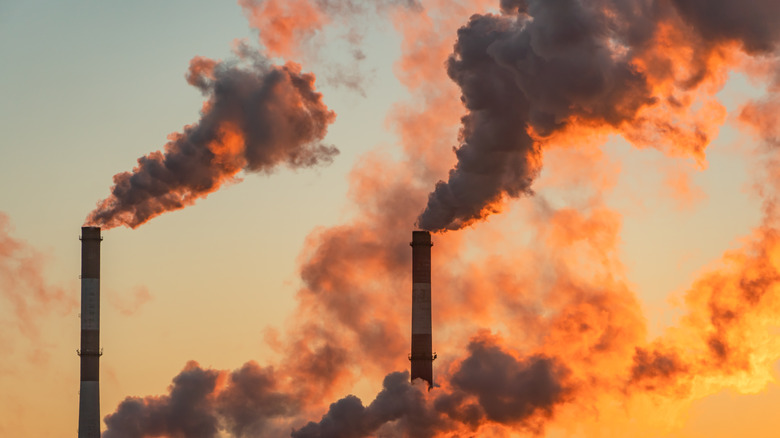New Study Finds How Air Pollution Can Affect Your Immune System As You Age
Chronic exposure to air pollution may weaken your immune system as you get older, according to a new study published in the journal Nature Medicine. Researchers from Columbia University examined lung lymph node tissue from 84 deceased donors between the ages of 11 and 93, all of whom were non-smokers, to find out why older adults tend to be more prone to suffering from COVID-19, the flu, and other lung infections (via WebMD).
While weakened immune systems in older adults have long been seen as a natural part of aging, researchers set out to determine whether or not environmental pollutants may have played a role in this immune function deterioration. The study's results found that inhaled particles from airborne pollutants accumulated in the immune cells of the lungs' lymph nodes over time, weakening the immune cells' ability to fight off respiratory infections. Compared to the tissue samples collected from children and teenagers, the lung lymph nodes of older adults appeared black in color instead of beige and were full of air pollution particles.
Air pollutants' impact on immune functioning
According to Donna Farber, PhD, a professor at Columbia University and the lead author of the study, the immune cell samples of older adults were "choked with particulates and could not perform essential functions that help defend us against pathogens," per New Atlas. These particulates were located inside a group of immune cells known as macrophages, which are responsible for getting rid of dead cells and destroying bacteria, viruses, and other potentially harmful substances (via Columbia University). Chronic exposure to pollutants, however, can impair their ability to function properly and fight off pathogens.
As a result, the study's findings suggest that air pollution particulates can accumulate in your lungs and weaken your immune system as you age, Columbia University states. While further research is still needed to study the full impact that air pollution has on the lung's immune cells, Farber says that "pollution undoubtedly plays a role in creating more dangerous respiratory infections in elderly individuals and is another reason to continue the work in improving air quality."


